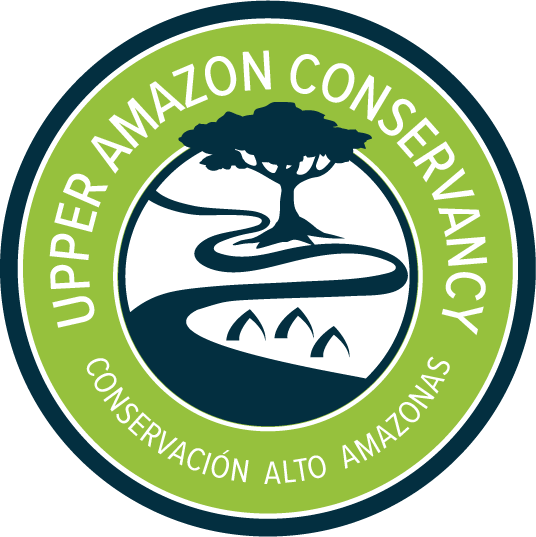Frustrations Grow after Communities are Raided by Isolated Tribes
March 2015: A UAC and ProPurús expedition to the remote headwaters of the Alto Purús River found growing frustration among local people towards isolated tribes living in nearby forests. In October and November of last year, four communities on a tributary of the Alto Purús were raided by isolated tribespeople who broke into houses and took clothing, machetes, pots and pans, as well as a short wave radio and solar panels. The heavier items including the radios and panels were destroyed and left in the nearby forest. The villages were abandoned due to local elections being held downstream. Now, several months later, villagers are demanding that they receive full compensation for the stolen items, and that the government do more to prevent future raids.
Huni Kuin (Cashinahua) families on the Alto Purús River have been raided by isolated tribespeople in recent months. Living in one of the most remote regions of Peru, they have few income opportunities and are asking the government to replace or compensate them for the stolen items.
While sightings of isolated tribes in the area are relatively common during the dry season when the tribes travel to the larger rivers to collect turtle eggs, there has been a dramatic increase of sightings in recent years: 25 in fact since 2009. Actually entering the communities, however, marks a dramatic change in behavior. It seems that a desire for manufactured items is overcoming their fear of outsiders. Remarkably, the trend is occurring with other isolated tribes elsewhere in the Alto Purús region and surroundings (see news on recent events in Simpatia and Monte Salvado).
The expedition team included representatives from government and indigenous groups working to protect the isolated tribes, including official guards from the Alto Purús National Park and Communal Reserve, volunteer Vigilance Committees from nearby communities, and protection agents from Ucayali’s indigenous federation, ORAU’s, project to protect tribespeople in isolation and in initial contact. Unfortunately, neither Peru’s parks service nor ORAU have a budget to compensate villagers on losses from the raids. Peru’s Ministry of Culture has provided some compensation, but according to local people it is not enough, and they have stated that in the future they will have no choice bu to defend their homes and possessions.
A Mastanahua man in initial contact with modern society lives with his two wives and mother-in-law near the Alto Purús River. He was contacted by US missionaries 10 years ago. However, members of his tribe still live hidden in the forest and in recent months have raided local communities for machetes, pots, clothing, and other manufactured items
What makes this situation especially unique is the presence of a Mastanahua family in initial contact near where the raids occurred. Contacted by missionaries roughly 10 years ago, the family of four live near the Purús Communal Reserve, and they serve as a link between two worlds: people like the Huni Kuin living in settled villages downstream, and the rest of their families still living in isolation in the forest. The Huni Kuin believe they may have helped their families conduct the raids.
The expedition was part of UAC and ProPurús work to train local guards and community leaders to react appropriately to contact events with isolated tribes in order to avoid violence and disease transmission. Lacking adequate government support in these remote areas, we are working to develop new projects that enable local people to not only react appropriately to future contact events, but to benefit from their critical role in ensuring that any contact is safe and ethical for both groups.
For more information contact cfagan@upperamazon.org.


